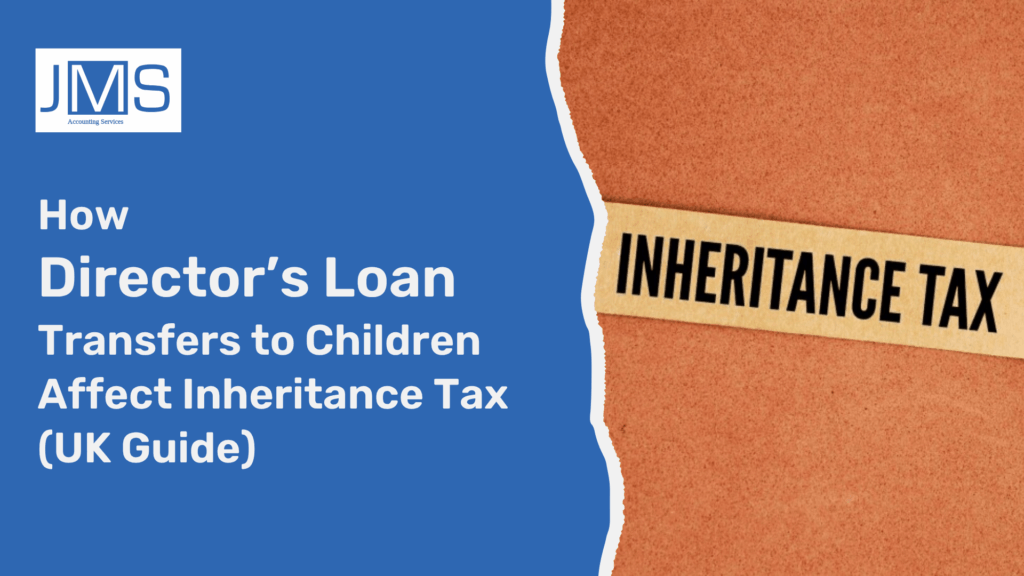Taxation of an Interest in Possession Trust under English Law

Introduction: Facts and Legal Issue An interest in possession trust is one where a beneficiary (often called a life tenant) has the present right to the present enjoyment of trust income, such as receiving income as it arises from the trust assets. The core legal issue is the taxation of such trusts—specifically, how income tax, capital gains tax (CGT), and inheritance tax (IHT) apply to both the trustees and the beneficiaries. The answer below details each head of tax, drawing on current English law. 1. General Principles: Definition and Structure 2. Income Tax Treatment a. Liability and Mechanism b. Trustees’ Tax Position 3. Capital Gains Tax (CGT) 4. Inheritance Tax (IHT) a. Creation and Transfers Table: Summary of PET and CLT Rules Date of Creation/Transfer Type of Trust/Interest IHT Treatment Before 22 March 2006 Any interest in possession PET 22 Mar 2006–5 Oct 2008 Transitional serial interest (non-spouse) PET After 22 March 2006 Disabled, transitional serial, post-death PET All others Chargeable Lifetime Transfer (CLT) (“Prior to 22 March 2006, the lifetime creation of an interest in possession trust, and a transfer into an accumulation and maintenance trust, were PETs … but any such transfers on or after this date are CLTs. Between 22 March 2006 and 5 October 2008 the lifetime creation of an interest in possession settlement was a PET if it was a transitional serial interest … Since 6 October 2008, where an interest in possession created before 22 March 2006 comes to an end and is replaced by another interest in possession, an IHT charge will arise. The lifetime termination of an interest in possession … is a PET if the interest was created: before 22 March 2006; or on or after 22 March 2006, and it is an immediate post-death interest or a transitional serial interest … In all other cases, the lifetime termination of an interest in possession on or after 22 March 2006 is not a transfer of value for the life tenant, because the life tenant is not considered to have the assets within their estate.” ) b. On Death/Termination 5. Application to the Question: Tax Implications for an Interest in Possession Trust In summary, under English law: Conclusion The taxation of an interest in possession trust in England involves separate regimes for income tax, capital gains tax, and inheritance tax. Each area has its own complexities, with careful attention required regarding the timing of the creation and termination of the interest, the nature of the trust, and the precise structure of the rights conferred. Trustees and beneficiaries alike should ensure compliance with the reporting and calculation rules outlined above, and seek professional advice on planning or restructuring such trusts. Would you like to explore specific scenarios, such as the treatment of accumulated income, the interaction with overseas beneficiaries, or the tax implications of terminating an interest in possession? If you have a particular trust arrangement or transaction in mind, please provide further details so we can examine the relevant rules more closely and address any uncertainties.
Understanding Family-Owned Investment Companies and Trusts

A Complete Guide to Preserving Wealth and Securing Future Generations When it comes to building and preserving wealth for future generations, families often turn to investment companies and trusts. These tools not only ensure financial growth but also provide strategic advantages in estate planning, asset protection, and governance. In this article, we explore how family-owned investment companies and trusts work—individually and together—to create a strong foundation for long-term wealth management. What Is a Family-Owned Investment Company? A family-owned investment company is a private entity, usually established as an LLC or corporation, that is controlled and operated by family members. Its primary purpose is to manage the family’s investments under a unified strategy. Key Features: Advantages: What Are Trusts and Why Are They Important? A trust is a legal structure where a third party, known as the trustee, manages assets on behalf of beneficiaries according to rules set by the grantor (the person who establishes the trust). Trusts are especially powerful tools in estate and tax planning, offering long-term control over how family wealth is distributed. Common Types of Family Trusts: Key Benefits of Using Trusts: How Investment Companies and Trusts Work Together Many high-net-worth families use both structures to optimize control, protection, and efficiency. Here’s how they complement each other: Best Practices for Structuring Family Wealth Final Thoughts Whether your goal is to protect wealth, minimize taxes, or streamline inheritance, combining family investment companies and trusts can offer a flexible and powerful solution. These structures not only safeguard assets but also align with long-term family values and financial goals—ensuring that your legacy endures for generations to come.
National Minimum Wage & Salaries Paid to Family Members

Introduction Hiring family members in a business is common, especially in small or family-run enterprises. However, it’s crucial to understand how national minimum wage (NMW) laws apply—even when employing relatives. This guide outlines the key legal, tax, and HR considerations to ensure you remain fully compliant while paying fair wages. 1. 🏛️ Legal Obligation to Pay Minimum Wage ✅ Minimum Wage Laws Apply to All Workers In most jurisdictions, employers are legally required to pay at least the national minimum wage to all employees, including family members. The relationship to the business owner does not exempt someone from wage laws. ⚠️ Non-Compliance Can Lead to Penalties Failing to meet minimum wage standards—even for relatives—can result in fines, back pay, and reputational damage. Government agencies treat all employees equally when enforcing wage laws. 2. 👨👩👧👦 Paying Wages to Family Members: Key Rules 💼 Actual Work Must Be Performed The family member must genuinely perform work for the business. You cannot claim payroll expenses or tax deductions for relatives unless they are doing real, documented work. 💷 Wages Must Reflect Work Done Pay must be reasonable and in line with market rates for the role. Underpaying family members—or overpaying to reduce taxable profits—can trigger audits or penalties. 3. 👩⚖️ Employment Rights for Family Members 📋 Equal Treatment Under Employment Law Family members employed in your business are entitled to the same legal rights as other employees, including: 💰 Subject to Payroll Taxes Wages paid must go through payroll like any other employee, with appropriate tax deductions and national insurance (or equivalent) contributions. 4. 📂 Documentation & Tax Compliance 🧾 Maintain Proper Records To comply with tax and employment law, you must: 💡 Tip: Use HMRC-compliant or jurisdiction-compliant payroll software to ensure everything is tracked and submitted correctly. 5. ⚖️ Special Cases & Exceptions 🛑 Limited Exemptions May Exist Some countries allow limited exemptions for family members working in truly informal or micro-businesses (e.g., children helping with chores). However, these are usually narrowly defined and do not apply to paid employees. 🧑🔧 Voluntary Work Is Different If a family member is volunteering and not being paid, minimum wage laws may not apply. However, if any payment or benefit in kind is given, this could trigger employer obligations. ✅ Summary & Employer Checklist Before hiring or paying a family member in your business, ask: 👉 If the answer is yes to all of the above, you’re on the right track. 📞 Need Help Drafting a Family Employment Policy? If you’re unsure how to structure pay for family members or want to avoid legal risks, we can help you create a custom employment policy and ensure you’re compliant with HMRC or other relevant authorities. Jiten Shah Director, JMS Accounting
How Director’s Loan Transfers to Children Affect Inheritance Tax (UK Guide)

Assigning directors’ loans to children can have significant inheritance tax (IHT) implications, depending on how the transaction is structured and the timing. Here are some key points to consider: 1. Nature of the Loan Transfer Gift vs. Loan:When you assign a director’s loan to a child, it can be viewed as either a gift or a transfer of the loan amount. If the loan is simply transferred without formal repayment terms, HM Revenue & Customs (HMRC) may consider it a disposal or gift. Formal Assignment:Proper documentation of the transfer as an assignment of the debt can help clarify the nature of the transfer. 2. Potential Inheritance Tax (IHT) Implications Gift with Potentially Exempt Transfer (PET):If the transfer of the loan is considered a gift, it may be classified as a PET. Such gifts are potentially exempt from IHT if the donor survives for seven years after making the gift. Immediate IHT Liability:If the transfer is made and the donor dies within seven years, the value of the gift (the loan amount) may be included in the estate for IHT purposes, potentially increasing the estate’s IHT liability. Charge on the Recipient:If the transfer involves a debt owed to the estate (e.g., if the director’s loan is assigned to a child), the child’s receipt of the loan may not be a taxable event per se, but the value of the gift remains relevant for IHT. 3. Impact on the Estate Depletion of the Estate:Assigning loans to children effectively reduces the estate’s value, which may decrease future IHT liabilities if the estate is below the nil-rate band. Potential for Clawback:If the loan is forgiven or not repaid, it could be seen as a gift, triggering IHT considerations. 4. Other Tax Considerations Income Tax and Capital Gains Tax:The transfer of the loan itself may not trigger immediate income or CGT, but if the loan is forgiven, there could be CGT implications. Chargeable Events:Forgiveness of the loan could be a chargeable event for IHT purposes, especially if the loan is considered a gift. 5. Planning Tips 6. Consult a Professional Given the complexity and the potential for significant tax consequences, it’s advisable to consult with a qualified tax advisor or estate planner before proceeding with such transactions. Summary Assigning directors’ loans to children can be considered a gift for IHT purposes, potentially triggering a PET that is only exempt if the donor survives seven years. If the donor dies within that period, the value of the loan may be included in the estate for IHT calculation. Proper documentation and planning are essential, and professional advice is strongly recommended.
How Different Countries Apply VAT on Cryptocurrency Transactions

The treatment of VAT (Value Added Tax) on cryptocurrencies varies depending on the country and its specific tax laws. Here’s a general overview: European Union (EU) Cryptocurrencies as means of payment: Generally, the EU treats cryptocurrencies as a form of electronic money or financial instruments rather than goods or services. VAT applicability: In many EU member states, the exchange of cryptocurrencies for fiat currency (such as euros, dollars) is exempt from VAT. This is because cryptocurrencies are often considered a means of payment. Buying and selling crypto: When you buy or sell cryptocurrencies, VAT typically does not apply to the transaction itself, but services related to crypto (like trading platforms) might be subject to VAT. United Kingdom HMRC stance: HM Revenue & Customs (HMRC) considers cryptocurrencies as property, not currency. VAT on crypto: Generally, cryptocurrency transactions are exempt from VAT in the UK, but certain services related to cryptocurrencies (like brokerage or trading platforms) may be subject to VAT. United States IRS classification: The IRS considers cryptocurrencies as property for tax purposes. VAT implications: The U.S. does not have a VAT system; instead, it has sales tax, which varies by state. Cryptocurrency transactions are generally not subject to sales tax, but the sale of goods or services for crypto may trigger sales tax depending on the jurisdiction. Other countries The VAT or sales tax treatment of cryptocurrencies varies widely: Summary
Plan Ahead: Higher HMRC Interest Charges in Effect From May 2025

In a move that has caught the attention of many UK businesses and taxpayers, Her Majesty’s Revenue and Customs (HMRC) has announced an increase in the interest rates applied to late payments. Effective immediately, the interest rate on overdue amounts has been raised by 1.5%. This change underscores the government’s aim to encourage timely payments and maintain fiscal discipline. What Has Changed? Previously, the interest rate for late payments was set at a certain baseline (for example, 3.0%). With the recent adjustment, the new rate has risen to 4.5%. This means that any outstanding tax liabilities, VAT, or other dues that are not settled by their due date will accrue interest at this higher rate. Why Did HMRC Increase the Interest Rate? The primary motivation behind this increase is to: Encourage prompt payment: Higher interest rates serve as a deterrent against late payments, helping HMRC improve cash flow and reduce the administrative burden associated with chasing overdue accounts. Align with economic conditions: The rate change may reflect broader economic factors, such as inflation or changes in the Bank of England base rate, which influence borrowing costs and financial discipline. Impact on Businesses For businesses and individuals, this change has several implications: Higher costs for overdue payments:Late payment penalties will now accrue more interest, increasing the total amount owed if payments are not made on time. Cash flow considerations: Companies may need to reassess their cash flow management strategies to avoid penalties and additional interest charges. Incentive for timely filing and payment: The increased rate underscores the importance of adhering to deadlines for submitting tax returns and making payments. Practical Tips for Businesses Review payment schedules: Ensure all tax liabilities are scheduled and paid well before the due date. Set up reminders: Use calendar alerts or accounting software to track upcoming deadlines. Maintain accurate records: Keep detailed records of payments made and correspondence with HMRC. Seek professional advice: If uncertain about payment obligations or facing cash flow issues, consult a tax advisor or accountant. Conclusion HMRC’s decision to increase interest rates on late payments by 1.5% highlights the importance of timely tax compliance. While the higher rates may seem burdensome, they serve as a reminder for businesses to prioritize punctual payments, helping to avoid unnecessary costs and potential penalties. Staying proactive and organized can mitigate the impact of these changes and ensure smooth financial operations. Stay informed and plan ahead to keep your business compliant and financially healthy.
Why UK landlords need a Power of Attorney

In the UK, landlords may seek Power of Attorney (PoA) for several reasons related to managing their property portfolios, especially when they are unable to personally handle certain affairs. Here are some common reasons why UK landlords might need a Power of Attorney: Types of Power of Attorney Relevant to Landlords General Power of Attorney: Grants broad authority over financial and property matters, but typically ceases if the donor becomes mentally incapacitated.Lasting Power of Attorney (LPA): Specifically designed to continue acting even if the donor becomes mentally incapable; often preferred for ongoing property management. Important Considerations Legal Validity: PoA documents must be properly drafted and registered (for LPAs) to be valid.Trust and Selection: Choosing a trustworthy attorney is crucial because they will have significant control over property affairs.Limitations: PoA does not transfer ownership but allows the attorney to act on behalf of the landlord within specified powers. Summary UK landlords need Power of Attorneys primarily to facilitate the management, sale, or legal handling of their property interests when they are unavailable, incapacitated, or wish to delegate authority securely and legally. If you need specific advice or help drafting a PoA, consulting a solicitor specializing in property law is recommended.
HMRC Crackdown on Cryptocurrency traders

In recent years, more and more people have invested in cryptocurrency, with some making instant gains of thousands and some losing everything. From April 2027, OECD’s Crypto-Asset Reporting Framework comes into effect, meaning that HMRC will have access via all crypto platforms to individual transactions.
Accountants are struggling to work with HMRC

Accountants are struggling to work with HMRC at even the most basic level and are calling for urgent improvements
The taxman’s dodgy data

Over the years of JMS Accounting operation, we have dealt with many data issues in relation to HMRC. When HMRC get things wrong they cause stress and waste large amounts of time for both our practice and our clients. Clients will often not understand that HMRC are at fault and our practice wastes many man-hours resolving mistakes by HMRC.
It was some comfort to our practice to read this article in the Spectator that highlighted the extensive data problems problems at HMRC. It doesn’t solve the issues, but it helps to understand the issues that our practice has to deal with were not just experienced by us but many businesses.